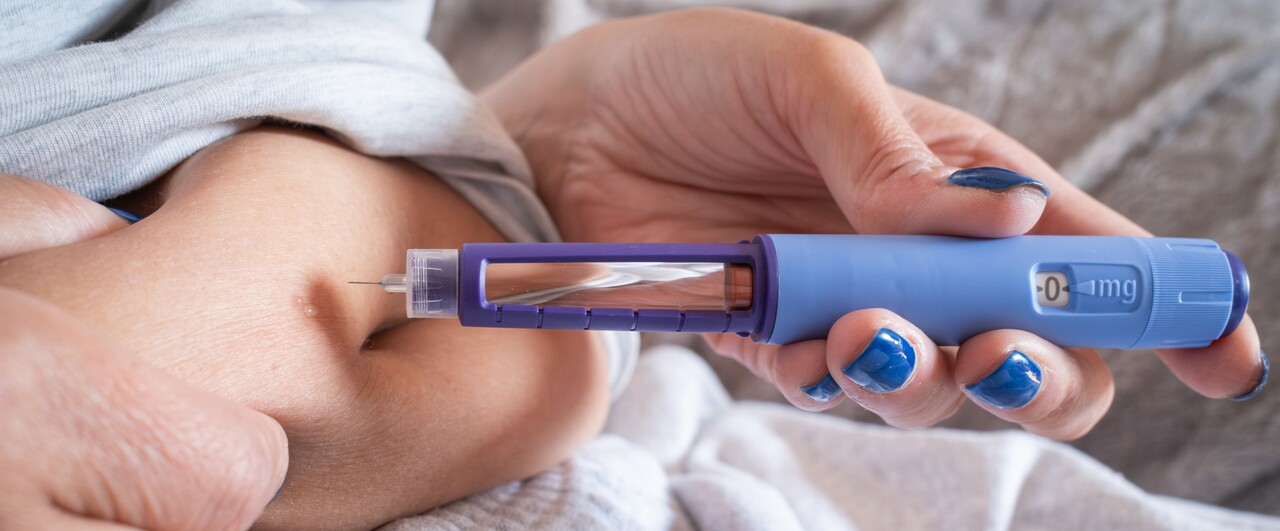— Dawn M. Sweet, Ph.D.
A recently approved F.D.A. drug delays the onset of Type 1 diabetes.
Approximately 1.5 million Americans have been diagnosed with Type 1 diabetes.1 A Type 1 diabetes diagnosis radically changes one’s life and warrants lifelong daily blood sugar monitoring to ensure appropriate insulin levels. For those living with Type 1 diabetes, there are a host of complications such as blindness, retinopathy, diabetic neuropathy, heart disease, stroke, and kidney failure.2 There are also age-related challenges, with younger patients perhaps struggling more to manage the daily demands of a chronic illness.
Although inroads have been made toward treating and managing Type 1 diabetes, it remains an illness with high prevalence of comorbidities and risk. While there is still no cure for Type 1 diabetes, the Federal Drug Administration recently approved a new drug, Teplizumab, that has been shown to delay the onset of Type 1 diabetes by, on average, two years, with the longest delay being 11 years.3
Teplizumab: Clinical Trial Inclusion Criteria and Design
A recent study in the New England Journal of Medicine reports1 that Teplizumab delayed the progression of Type 1 diabetes in study participants who were considered high risk. There were several inclusion criteria to be eligible for the clinical trial; for example, some of the criteria included being the nondiabetic relative of a Type 1 diabetic, being at least eight years old, and being at high risk for developing Type 1 diabetes. Other criteria included a fasting glucose level of 110–125 mg per deciliter, at least a 140 mg per deciliter two hour postprandial plasma glucose level and < 200 mg per deciliter, or, at 30, 60, or 90 minutes a postprandial plasma glucose level > 200 mg per deciliter two times before enrollment.
Study participants were randomly assigned to either the treatment group, i.e., receiving Teplizumab, or the control group, i.e., receiving a placebo. Stratified randomization was used to divide participants by age (< 18 or ³ 18) and a second oral glucose tolerance test prior to treatment (impaired, normal, or diabetes). Trial participants received either Teplizumab or intravenous saline for 14 days as outpatients. Teplizumab was dosed according to body-surface area, beginning with 51 μg per square body area on Day 0, followed by dosages of 103 μg, 207 μg, and 413 μg on days 1 -3 and 826 μg per square meter on days 4 – 13.
Teplizumab Clinical Trial Results
Ninety three percent of participants in the Teplizumab group and 88 percent of participants in the placebo group (41 and 28 participants respectively) completed the 14-day trial. Results show that a single course of Teplizumab significantly delayed the progression of Type 1 diabetes, with the median diagnosis being 2 years. When the trial concluded, 57 percent of participants in the Teplizumab group were diabetes-free while only 28 percent of participants in the placebo group were diabetes free. These findings are clinically important, especially for younger children, who struggle with the challenges of daily management of a chronic disease.1 Delaying the onset of Type 1 diabetes may offer at risk individuals additional time to mature, thus making it presumptively less challenging to manage the daily demands of monitoring their Type 1 diabetes.
Managing Type 1 Diabetes
While insulin4 is still the primary treatment method for Type 1 diabetes, Teplizumab offers hope for at-risk persons, particularly younger people, who are at risk for developing this lifelong illness. In addition to insulin and pharmacological treatment, diet and exercise are also part of successfully managing a Type 1 diabetes diagnosis. Clinicians should work with their patients with Type 1 diabetes to create a food plan and exercise plan that is right for them. Part of this plan may include creating healthy habits by increasing non-starchy vegetables and fiber intake to help manage glucose levels. These changes can be part of a healthy Low Calorie Diet (LCD).
Sources:
- An anti-CD-antibody, Teplizumab, in relatives at risk for Type 1 diabetes
- Type 1 diabetes complications – endocrineweb.com
- F.D.A. approves a drug that can delay Type 1 diabetes
- Type 1 diabetes treatment – endocrineweb.com
About the Author: Dr. Dawn M. Sweet has over 20 years of experience in the field of communication. Sweet has given several invited talks to and workshops for academic and private sector audiences on the role of nonverbal and verbal communication in achieving positive outcomes and mitigating bias. Her research has been published in several top ranked peer-review journals, and it has been featured on NPR’s River to River / All Things Considered, Buzzfeed, and Science Daily.Her research has also been used to inform expert testimony.




